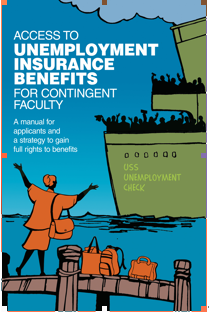Detroit Free Press: New WSU contract may give part-timers a raise
Hundreds of part-time faculty members would get a raise and increased job security under a proposed contract with Wayne State University, according to the group’s union.
Wednesday’s agreement on the tentative contract, the union’s first with the university, followed a 21-hour bargaining session.
“The people at the bottom are getting the biggest bump,” Amanda Hiber, a part-time faculty member in the university’s English department and a union spokeswoman, said of the proposed raises in the four-year deal.
The proposal also creates a three-tiered seniority system that “recognizes years of service to the university,” Hiber said.
The union’s leadership plans to meet today to decide when to present the contract to members for a vote, Hiber said.
Wayne State employs 700-900 part-time faculty members, although the number varies by semester, she said.
A university spokeswoman said she could not offer an immediate comment.

 Follow
Follow